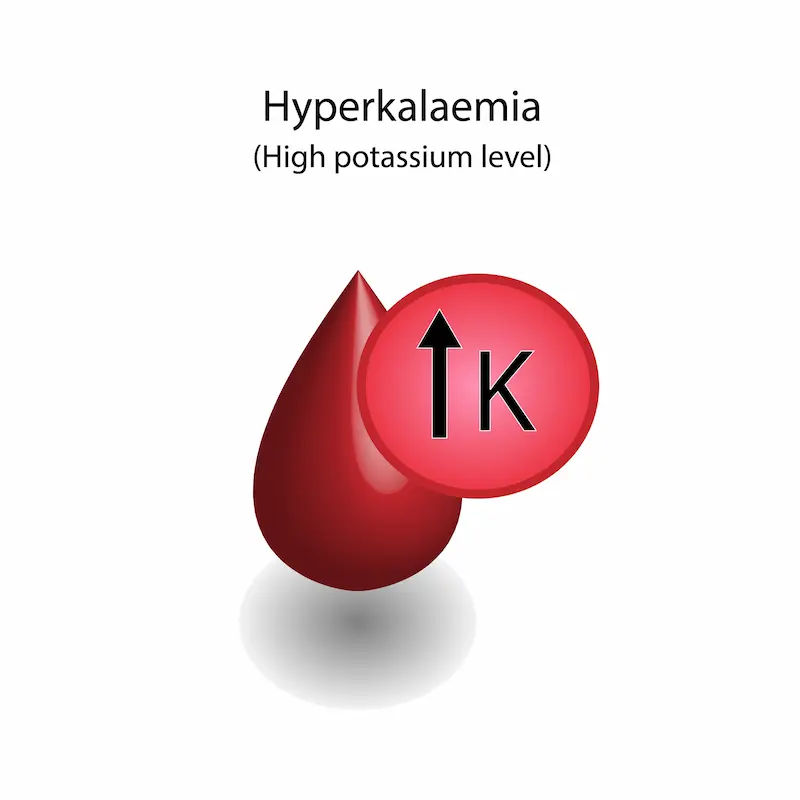Know About Loss of Appetite and 10 Key Causes Explained
Know about the loss of appetite, key causes for appetite loss, diagnosis and strategies to improve the appetite loss. Learn when to see a doctor for appetite loss and more.

Written by Dr. Siri Nallapu
Reviewed by Dr. Dhankecha Mayank Dineshbhai MBBS
Last updated on 13th Jan, 2026

Introduction
That feeling of staring at a plate of food you'd normally love and having zero desire to eat it is a common experience known as loss of appetite, or anorexia (not to be confused with the eating disorder anorexia nervosa). While skipping a meal here and there is normal, a persistent lack of interest in eating can be a sign that something is off with your physical or mental well-being. This sudden disinterest in food is your body's way of sending a signal.
This article will explore the myriad reasons behind a dwindling appetite, from common short-term illnesses to more serious underlying conditions, and guide on when it might be time to seek professional advice.
Consult a Gastroenterologist for Personalised Advice
Reasons for Loss of Appetite: Key Causes Explained
The key causes are explained as follows:
1. Understanding Appetite: The Body's Complex Signalling System
Appetite isn't just about hunger; it's a sophisticated dance between your brain, gut, hormones, and senses. Hormones like ghrelin (the "hunger hormone") and leptin (the "satiety hormone") work in tandem to regulate your desire to eat. When this system is disrupted by illness, stress, or other factors, the first sign is often a loss of appetite. Recognising this as a symptom, not the problem itself, is crucial.
2. Short-Term Illnesses and Infections are The Most Common Culprits
Viral and Bacterial Infections
When your body is fighting an invader, it redirects all its energy toward the immune system. This is why a loss of appetite with a cold or flu is so universal.
Common infections like:
Common cold or influenza
Stomach flu (gastroenteritis)
COVID-19
It often suppresses appetite as the body prioritises healing over digestion.
Digestive System Issues
It's no surprise that problems within the digestive tract itself can make eating unappealing. Conditions like:
Acid reflux (GERD)
Irritable Bowel Syndrome (IBS)
Food poisoning
Causes nausea, pain, or discomfort, which naturally leads to a loss of appetite and avoidance of further distress.
3. Chronic Medical Conditions and Appetite Suppression
A persistent lack of appetite can be a red flag for an underlying chronic illness. The body's resources are consumed by managing the disease state.
Hormonal and Metabolic Disorders
Conditions like hypothyroidism, diabetes, and Addison's disease disrupt the normal hormonal balance that regulates hunger and metabolism, often leading to a decreased appetite.
Organ Disease
Chronic diseases of the liver (like hepatitis), kidneys (kidney failure), and heart (congestive heart failure) are strongly associated with appetite loss due to toxin buildup, inflammation, and the body's overall compromised state.
Cancer and Cancer Treatments
A significant loss of appetite in cancer patients, known as cancer anorexia-cachexia syndrome, is a complex issue. The disease itself changes metabolism, and treatments like chemotherapy and radiation can cause nausea, mouth sores, and taste changes, making eating difficult and undesirable.
4. The Powerful Mind-Gut Connection: Psychological Causes
Your mental state has a direct line to your gut, often called the "second brain."
Stress and Anxiety
The fight-or-flight response triggered by anxiety and loss of appetite shunts blood away from the digestive system and releases cortisol, which can blunt hunger signals. Chronic stress can lead to long-term appetite issues.
Depression
Depression doesn't just affect mood; it affects the entire body. It can disrupt the normal regulation of appetite hormones, leading to either increased or, more commonly, a severe decrease in appetite and interest in food.
Eating Disorders
Conditions like anorexia nervosa involve an intentional restriction of food intake, but the psychological aversion to eating becomes a powerful physiological reality.
5. Medications and Medical Treatments
Many prescription drugs list loss of appetite as a potential side effect. Common culprits include:
Antibiotics
Chemotherapy drugs
Pain medications (especially opioids)
Diuretics
Some antidepressants and stimulants (like those for ADHD)
If you've started a new medication and noticed a change, discuss it with your doctor.
6. Lifestyle and Environmental Factors
It plays an important yet subtle role in the loss of appetite; it may be due to one of the following reasons:
Age-Related Appetite Changes: Elderly and Children
Loss of appetite in the elderly (a condition known as anorexia of ageing) is widespread due to a slowed metabolism, decreased physical activity, sensory changes (loss of taste and smell), social isolation, and side effects of multiple medications.
Similarly, loss of appetite in toddlers and children is a frequent parental concern, often linked to picky eating phases, growth spurts, or minor illnesses.
Dietary Habits and Deficiencies
Paradoxically, a deficiency in certain nutrients like zinc or B vitamins can further reduce appetite, creating a vicious cycle.
Substance Use
Smoking, excessive alcohol consumption, and use of illicit drugs can all interfere with taste buds, irritate the digestive system, and suppress the brain's appetite centres.
When to See a Doctor: Red Flags
While a short-term loss of appetite is often harmless, you should consult a healthcare professional if it's accompanied by:
Rapid, unintentional weight loss
Fever, vomiting, or diarrhoea that lasts more than 24-48 hours
Difficulty swallowing or pain when eating
Fatigue and loss of appetite that is severe and persistent
Signs of dehydration (dark urine, dizziness)
Appetite loss that lasts for more than a week without a clear cause
Diagnosis: What to Expect
Your doctor will work to find the root cause. This typically involves:
1. A detailed medical history and discussion of your symptoms.
2. A physical examination.
3. Blood tests to check for infection, organ function, and hormone levels.
4. Other tests (like imaging or endoscopy) if a specific condition is suspected.
Strategies to Manage and Improve Your Appetite
Simple yet effective strategies are key to improving your appetite. Follow the tips below to see a change in your appetite.
Eat Small, Frequent Meals:
Large plates can be overwhelming. Try 5-6 smaller meals or snacks throughout the day.
Focus on Nutrient Density: When you do eat, choose foods packed with calories and nutrients (e.g., nuts, avocados, whole-fat yoghurt, smoothies).
Make Meals Enjoyable:
Eat with friends or family, watch a show, or listen to music to create a positive association. Stay Hydrated: Drink fluids between meals, not with them, to avoid feeling overly full.
Gentle Exercise:
A short walk can sometimes stimulate appetite. Consider Appetite Stimulants: In some cases, a doctor may prescribe medication to help boost hunger.
Conclusion
A loss of appetite is a universal but complex experience with a wide range of potential triggers, from the mundane, like a common cold, to the serious, like a chronic illness. Listening to your body is important, but so is understanding the context. A short-term dip in hunger usually resolves on its own.
However, a persistent lack of interest in food, especially when paired with other worrying symptoms like unexplained weight loss or extreme fatigue, warrants a conversation with a healthcare provider. They can help you identify the root cause and develop a plan to nourish your body properly, addressing any underlying issues. Your appetite is a key barometer of your health. Paying attention to it is a vital form of self-care.
Consult a Gastroenterologist for Personalised Advice
Consult a Gastroenterologist for Personalised Advice

Dr. Jatin Yegurla
Gastroenterology/gi Medicine Specialist
11 Years • MD (PGI), DM (AIIMS Delhi), FAGIE (AIIMS Delhi), ESEGH (UK), Gold Medalist
Hyderabad
Apollo Hospitals Jubilee Hills, Hyderabad
(650+ Patients)

Dr. Amit Pandita
Gastroenterology/gi Medicine Specialist
10 Years • MBBS. MD (INTERNAL MEDICINE) DrNB (GASTROENTEROLOGY AND HEPATOLOGY)
Delhi
Apollo Hospitals Indraprastha, Delhi

Dr. Ankit Vijay Agarwal
Gastroenterology/gi Medicine Specialist
14 Years • MBBS(Osmania), DNB(Internal Medicine ), DM ( Osmania) Consultant Gastroenterologist, Hepatologist and Advanced Therapeutic Endoscopist
Hyderabad
Apollo Hospitals Jubilee Hills, Hyderabad

Dr Piyush Vishwakarma
Gastroenterology/gi Medicine Specialist
11 Years • MBBS, MD, DrNB,
Delhi
Apollo Hospitals Indraprastha, Delhi

Dr. Seshadri Venkatesh P
Gastroenterology/gi Medicine Specialist
27 Years • DNB(Gen. Med.), DNB(Gastro)
Chennai
Apollo Hospitals Greams Road, Chennai
(50+ Patients)
.webp)



